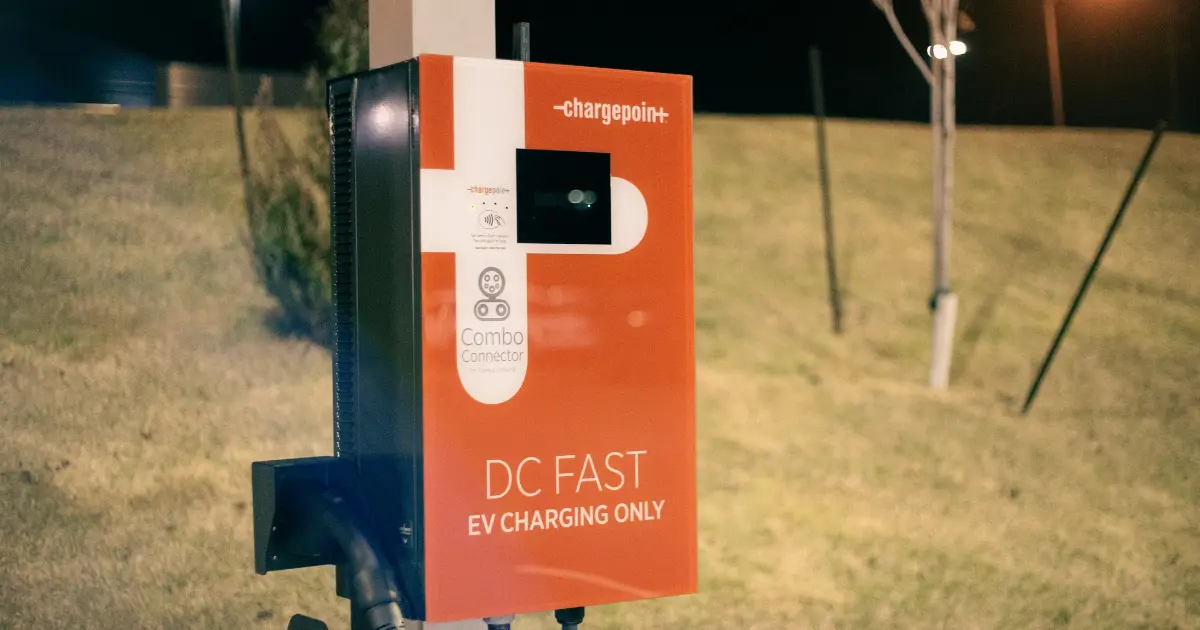13 Foreign Business Ideas Which Are Not in India

Being a small business owner in India doesn’t tie you down to the local opportunities only; the world is your playground.
The beauty of today’s connected economy lies in the idea that you can take a successful idea from another country and make it suit your audience in its unique needs, watching it flourish here.
Think of taking a finely turned-out recipe and adding a touch of your own spice, something that is very Indian in nature, to dish out something that local tastes would resonate with, but at the same time retains its original essence.
Foreign Business Ideas Ready for Indian Markets
While some business models have been hugely successful in foreign countries but not in India, the latter’s absence in that market makes it a goldmine for those ready to take the leap.
In this blog, I’ll walk you through eleven business ideas from around the world that could make a difference in India.
Dockless Bike Sharing

Imagine an Indian city with that chaotic city life and traffic every day. Now, imagine offering a solution that is not only person-to-person convenient but also eco-friendly.
That is what dockless bike-sharing systems like Lime have given to cities around the world. Providing users with the ability to rent bikes through an app and dropping them off anywhere, the services have made connectivity of last miles more convenient and green.
Challenges
Infrastructure: Most of the cities lack cycling lanes and safe parking spots. Most of these spots are occupied by other modes of transportation, which can act as a deterrent in popularising dockless bike-sharing services.
Opportunities
Environmental Awareness: Rising environmental awareness and impetus given to greener modes of transport generate demand for eco-friendly transportation solutions in India.
Youth and Tech-Savvy Population: India’s young, tech-savvy population will easily embrace new, innovative solutions for app-based mobility.
Target Market: Young professionals, students, and urban commuters.
Sales Channels: Mobile apps, local business partnerships, and government channel collaboration.
Urban Farming Solutions

Hydroponics and vertical farming have turned the rooftops and small areas into a thriving green ecosystem in many countries.
Bringing this to India would help address food security and promote sustainable living.
Challenges
Space Constraints: The availability of rooftops or specific areas in urban areas might be limited, which may make scaling difficult.
Initial Investment: Hydroponic and vertical farming systems require significant upfront investment, which might deter small entrepreneurs.
Opportunities
Health-Conscious Consumers: Many urban consumers now look for fruit and vegetables free from chemicals and organic in origin.
Unused Urban Spaces: High availability of underutilized rooftops and vacant plots in cities
Target Market: Health-conscious urban families, local restaurants, and environmentally conscious bodies.
Sales Channels: Direct-to-consumer delivery, farmers’ markets, and partners with cafes and organic stores.
Cloud Seeding Services

Cloud seeding brings more rain where and when it’s required.
It is a technology that has been around and used in nations such as the UAE, China, and the U.S. to improve rainfall, fill up reservoirs, and assist in agriculture.
By introducing minute particles into the atmosphere that facilitate cloud development, cloud seeding makes the possibility of rain in desired regions more probable.
Although cloud seeding is not yet widespread in India, pioneers like Kyathi Climate Modification Consultants and Agni Aero Sports are exploring its potential.
Challenges
For farmers: A weak or late monsoon can translate into huge losses of crops. Timely rains through cloud seeding can save their produce.
For cities: Droughts are increasingly becoming the order of the day. The technique can ensure the filling up of reservoirs and give stable supplies of water.
For industries: Hydropower, beverages manufacturing, and others all depend on water.
Government Rules: As it is a weather modification, authorization and coordination with meteorological bodies are needed.
Opportunities
Water Scarcity Prevention: As India is also confronting serious water scarcity, cloud seeding can be a good means for arid regions.
Support for Agriculture: Monsoon-dependent farmers can gain with controlled rain, providing improved harvests.
Target Market: State governments, farm cooperatives, and water resource-dependent industries.
Sales Channels: Government contracts, public-private partnerships, and cooperation with meteorological agencies.
Subscription-Based Car Wash Services

This subscription-based car wash service is one of the most convenient for car owners.
They don’t have to allocate time to visit a car wash. They can schedule cleanings through an app, and the service comes to their doorstep.
This model is quite popular in countries like the USA and offers consistent care and quality while saving precious time.
Challenges
Use of Water: Given that most cities lack enough waters and the traditional system used cannot be applied due to a lack of waters in them.
Service Time Management: Scheduling schedules and timely delivery in multiple localities can be challenging
Opportunities
A time-strapped urban lifestyle results in car owners being able to pay for doorstep car servicing.
Environment-friendly Options: Waterless or low water contact services for car cleaning can create an opportunity for eco-people.
Target Market: Metro and tier-1 car customers, working professionals, as well as busy families.
Sales Channels: Mobile app, local tie-ups with Residential societies, and car dealers.
Personalised Health and Wellbeing

As we step into the realm of health and wellness, increasing awareness around mental health pops up at the very forefront.
In countries like the U.S., this need has been catered to by apps such as Headspace and Calm, which provide personalized support for mental well-being.
Taking into consideration the rising stress levels in India and the rapidly growing acceptance of digital health solutions, this presents a huge opportunity.
Challenges
Cultural Sensitivity: Mental health and well-being remain culturally sensitive subjects in most parts of India. Changing such perceptions and ensuring usage is difficult.
Content Localization: For the content to be effective, it needs to be not only language-localized but also has cultural relevance, which again calls for huge investments in research and development.
Access to Technology: Although there is a high smartphone penetration, access to such services in rural and semi-urban areas remains limited due to the digital divide.
Opportunities
Growing Health Consciousness: Urban Indians are slowly gaining awareness and becoming open to mental health and well-being, especially in younger age groups and professionals.
Integrate with Local Practices: Traditional Indian wellness practices like yoga and Ayurveda can find a place in such digital platforms, hence appealing to the local audience with a unique selling proposition.
Corporate Wellness Programs: More and more businesses have become very responsive to employee well-being, which has opened the door to offering such services through their corporate wellness programs.
Target Market: Urban youth, professionals, and fitness enthusiasts.
Sales Channels: Mobile apps, partnerships with wellness centers, corporate wellness programs.
eCommerce Niche Stores

An e-commerce niche store is simply an online store that focuses its sales on a particular category of products.
Think about a store that does not attempt to be everything to everybody but specializes in one product category to the point where customers can’t get enough of it.
This is the essence of niche eCommerce stores that have taken off in places like the U.S. and Europe. They found success by zooming in on passionate customer segments who crave something special, something just for them.
In India, we have an expanding middle class who become more and more discerning shoppers. They look for quality, uniqueness, and the feeling of personal experience. And that’s where a niche eCommerce store really can make it big.
But if you can make it work here, one needs to understand the local logistics. That itself is a challenge, more specifically in tier-2 and tier-3 cities for reaching customers.
Challenges
Logistics and Delivery: It’s rather challenging to have logistics across such a vast geography coupled with deficits in infrastructure, reaching the customers residing in rural or semi-urban areas. The establishment of timely and cost-effective delivery is the key.
Competing with Giants: It is difficult to steal market share from large e-commerce giants like Amazon and Flipkart, who have gigantic market shares and consumer trust.
Consumer Trust: Trust is a huge factor in e-commerce. With new niche stores coming up, it is tough to convince the customers that the products are of good quality and not some fake brands or knockoffs.
Opportunities
Customization and Personalization: Since niche stores are concerned with specific products, they can provide highly customized goods and services to customers, servicing specific needs which large platforms might not address.
New, Untapped Markets: Most of the niche markets remain unexplored in India. Enabling the exploitation of gaps in the market could prove to be huge potential catering to passionate, underserved communities.
Direct Engagement: Niche e-commerce can facilitate one-on-one contact with customers, in which entrepreneurs will have a better understanding of customer preferences and provide customized experiences for customers.
Target Market: People living in towns, young adults, and the fashion conscious.
Sales Channels: Social media platforms, direct-to-consumer websites, marketplaces.
Smart Film Glass Business

Glass is everywhere – store fronts, office dividers, and home windows.
But what if you had the ability to control its transparency at the press of a button?
That’s precisely what smart film glass does.
This adhesive digital film can be installed on any glass surface, toggling instantly between transparent and opaque.
It’s ideal for privacy, energy savings, and even as a digital display screen for store front advertising.
To see how smart film glass works in real-world settings, check out this video.
Challenges
Consumer Education: Most people and homeowners have no idea what smart film glass can do for them.
Price & Installation: Although less expensive than smart glass, the cost of the high initial outlay might be unappealing to some consumers.
Opportunities
Retail & Marketing: Use store windows as interactive marketing screens.
Office & Hospitality: Provide adjustable privacy products for meeting spaces and hotel areas.
Energy Savings: Reduces heat and glare, saving money on air conditioning.
Target Market: Retail chain stores, real estate developers, office premises, hotels, and high-end residences.
Sales Channels: Direct B2B sales, collaborations with interior designers/architects, websites, and dealerships.
Infrastructure for Electric Vehicles

Now, where the future in transport lies—electric vehicles (EVs), countries like Norway and the Netherlands sit at the forefront with their comprehensive EV infrastructure.
The move toward electrical transport is gathering impetus in India.
Those businesses working toward the creation of a robust EV infrastructure are going to position themselves as leaders in this budding industry.
There is one massive business opportunity open here.
Challenges
High Up-Front Investment: The development of infrastructure requires huge capital investment, which may not be possible for small businessmen or startups.
Compliance with Regulations: Compliance with various standards and regulations related to electric vehicle infrastructure is cumbersome and varies from state to state.
Opportunities
Growing Market: As people are getting more and more inclined towards electric vehicles, the infrastructure will be in even greater demand, providing an advantage to those early entrants who have positioned themselves favourably with a market leading value proposition.
Early Mover Advantage: This involves setting up a charging station network early enough to be better positioned in a market niche, more so in city centers, where EVs are highly expected.
Corporate Partnerships: The companies can leverage their ties with vehicle manufacturers, real estate developers, and large enterprises for continuous user acquisition and finding growth opportunities.
Target Market: Fleet operators, urban drivers, and EV manufacturers.
Sales Channels: Car manufacturer partnerships and services offered directly to consumers.
Telemedicine and Rural Healthcare

Another sector that is waiting for innovation to happen is healthcare.
Many in India’s vast rural population remain deprived of quality healthcare, which could be taken a step closer to them by telemedicine.
Platforms that can offer remote consultation, diagnostics, and medicine delivery have become successful the world over and hold huge potential in India.
Challenges
Infrastructure Gaps: Inadequate internet connectivity and technological infrastructure within the rural area can seriously dent the effectiveness of telemedicine services.
Regulatory Barriers: There are considerable difficulties in the maze of regulations relevant to healthcare delivery, patient data privacy, and telemedicine.
Trust Issues: Building trust among rural populations habituated to face-to-face rather than remote consultations takes time.
Opportunities
Addressing Healthcare Access: It can fill the gap in healthcare access in remote and underserved regions, therefore being more inclusive.
Government Support: There’s huge governmental interest in the use of telemedicine as a way of improving healthcare delivery to rural areas, and possible subsidies and collaborations.
Scalability: It is comparatively easy to scale a telemedicine platform, once established, in a bid to serve a larger segment, hence offering immense growth potential.
Target Market: Rural populations, healthcare providers, and government health initiatives.
Sales Channels: Mobile apps, local health workers, and government programs.
Air-Quality Driven Workspaces

In metro cities, the mix of poor air quality and inadequate ventilation can result in high CO₂ levels, and this can reduce productivity, create fatigue, and pose health hazards in workplaces.
Intelligent workplaces with sophisticated ventilation, air quality sensing, and smart climate control develop the most pleasant and health-focused environments for working professionals.
Due to the emergence of remote working and hybrid offices, businesses are looking for agile, high-technology workplaces that promote employee health.
Challenges
High Upfront Installation Costs: The installation of new air systems is an investment.
Market Education: Most businesses still ignore the effect of air quality on productivity.
Opportunities
Health-Conscious Workspaces: Distinguish from conventional co-working spaces by providing better air quality and intelligent climate control.
Corporate Demand: Most companies look for sustainable and employee-centric workspace solutions.
Subscription-Based Revenue: Provide flexible rental options for freelancers, startups, and remote teams.
Target Market: Startups, remote employees, technology firms, and companies that value employee wellness.
Sales Channels: Direct company outreach, HR partnerships, online marketing, and business networking events.
Esports Arena

Let us now turn to another type of arena—one in which gamers come to battle it out and the audience holds their breath in anticipation.
The esports culture of South Korea gave way to similar arenas worldwide.
With the Indian gaming community booming, this idea may just work its magic here, too.
Challenges
High Set-up Costs: An e-sport game arena necessitates vast investment in technology, space, and related infrastructure.
Building an Audience: While the popularity of gaming grows, developing an audience devoted to live events and arenas requires significant marketing efforts that take a long time.
Opportunities
Rising Gaming Culture: Due to the growing interest in Indian gaming culture, mainly among young people, more events and places for esports are called upon.
Brand Partnerships: Sponsorships, brand partnerships, and collaborations with gaming companies can be utilized by e-sports arenas to produce even more revenue streams.
Diversified Revenue Streams: Rather than relying on ticket sales, funds can be generated from merchandising, streaming rights, and having tournaments in order to enable many diversified income streams.
Target Market: Gamers, tech enthusiasts, and youth.
Sales Channels: Event ticket sales, online streaming, sponsorships.
Virtual Call Center Business

The last business that really comes to mind, more so in today’s post-pandemic world, is virtual call centers.
In fact, outsourcing and call centres have been established in India for quite a long time. The virtual model just simply gives them flexibility and resilience against future disruptions.
Challenges
Technology and Infrastructure: Ensuring that technology infrastructure, like internet connectivity and call-handling systems, is faultless for smooth operations.
Remote Management: Challenges exist when managing a remote workforce; from maintaining productivity to communication and keeping employees engaged.
Security Concerns: Data security and privacy are issues of major concern, more so in the case of sensitive customer information handling.
Opportunities
Cost Efficiency: Since there are no overheads involved in virtual call centers, they prove to be quite cost-effective as compared to traditional brick-and-mortar set-ups and result in increased profitability.
Scalability: Virtual call centers can also be changed easily to facilitate great flexibility within fluctuating markets.
Resilience: Since the virtual call center can work anywhere, that protects it from any type of disturbance, whether from lockdowns or natural catastrophes, ensuring a continuity of service.
Target Market: Small and medium-sized enterprises, large organizations, and customer service companies.
Sales Channels: B2B partnerships, online platforms, and outsourcing marketplaces.
Zero-Waste Grocery Stores

Waste-free shopping, which is already very popular in Germany and the USA, will have a significant impact in India.
A zero-waste grocery store does not use single-use packaging.
It asks consumers to bring their own containers to buy staple grains, spices, oils, and other essentials.
Challenges
Consumer Behavior: People will need time and awareness before they start adopting the “bring-your-own-container” model.
Initial Setup Costs: Setting up a store with reusable storage systems and hygienic practices might require planning.
Opportunities
Rising Eco-Awareness: Most Indian cities are becoming eco-friendly and banning single-use plastics.
Cost Effective for Consumers: Bulk buying tends to be cheaper, thus an excellent choice for thrifty consumers.
Target Market: Urban consumers and families conscious of reducing their ecological footprint.
Sales Channels: Local stores, eco-friendly e-commerce, and community partners.
Exploring foreign business ideas in India certainly opens up an avenue for Indian entrepreneurs to introduce new, innovative concepts into the local market.
Of course, any business venture has risks and rewards that go with it.
Allow yourself some time for research, finding mentors, and developing your plan.
By doing so, you’ll be moving through such opportunities confidently, putting your business on the road to success.
Disclaimer: The information contained in this blog, The Growth File, is intended for general informational purposes only and does not constitute professional advice. Always consult with a qualified professional before making any business decisions based on the information you find on this blog.
